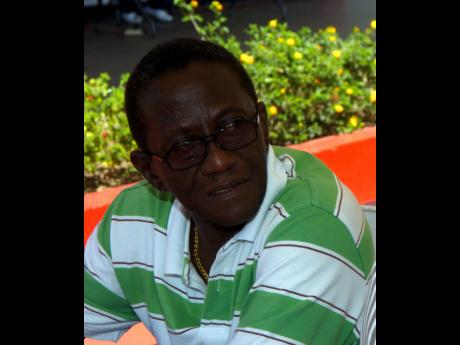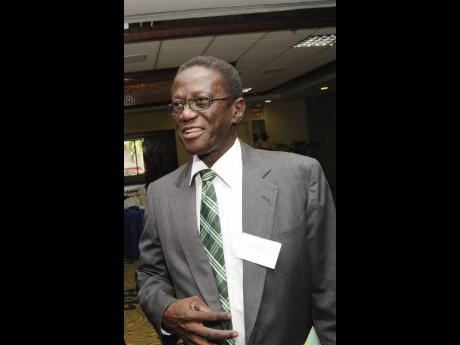Dwight Nelson quits politics
Dwight Nelson, the politician who commanded the gritty national security portfolio when police and soldiers swept into west Kingston five years ago to apprehend community strongman Christopher 'Dudus' Coke, has walked off the political stage.
Nelson told The Gleaner that he was bowing out to make way for younger political aspirants.
"I think the time has come for me to step aside for the younger ones," said the Jamaica Labour Party (JLP) stalwart.
His disclosure coincides with the fifth anniversary of the police-military incursion in the JLP stronghold of Tivoli Gardens and its environs. It comes at a time when a commission of enquiry is attempting to ferret out the truth about the deaths and devastation wrought by the operations.
Nelson described his time in politics - from his first appointment to the Senate in 1983 - as being oftentimes controversial but at all times satisfying.
"I have been able to serve the people of Jamaica," he told The Gleaner.
But he was more detailed as he posted on the social-media platform Facebook.
"I now have no political colour nor friends, perhaps enemies, but Jah is my guide," he declared.
When The Gleaner asked him to clarify, Nelson said: "I have posted that I am no colour - orange nor green. This simply means that I am a nationalist."
He added: "Don't forget that I led 13 major unions in negotiations with [then] Minister of Finance Dr Omar Davies to the signing of the first public-sector memorandum of understanding."
He told The Gleaner that some people in the JLP wanted him expelled at the time for playing that role.
"I was deputy chairman of the Michael Manley Foundation as a Labourite - a real nationalist," he declared.
Asked whether he was throwing in the towel once and for all, with no intention of returning, Nelson said: "Very much so. I have now extricated myself from all political affiliations and activities."
'LONG JOURNEY'
He characterised his foray into the political arena as a "long journey".
"From sitting at Irish Town with Edith Nelson, [and] Lady and Sir Alexander Bustamante to visiting Sir Donald Sangster in Montreal, to being a confidant for Hugh Shearer, a working associate for Edward Seaga and Bruce Golding, and chief of staff for Andrew Holness," he said.
Nelson figured prominently as national security minister in the high-profile extradition controversy surrounding Coke that precipitated the 2010 police-military operation that claimed the lives of more than 70 persons.
A trade unionist by profession, Nelson also spearheaded the bipartisan approach in forging the first social partnership pact with the public-sector workers nearly a decade ago.
He disclosed that while on retirement, he will be completing a book on former Prime Minister Hugh Shearer.
Noting that he functioned in the capacity of senior vice-president of the Bustamante Industrial Trade Union, then as a director in the Matalon Group of Companies and as minister with responsibility for the public service in the Ministry of Finance, Nelson said: "No other person has represented at managerial level, labour capital, and Government."


